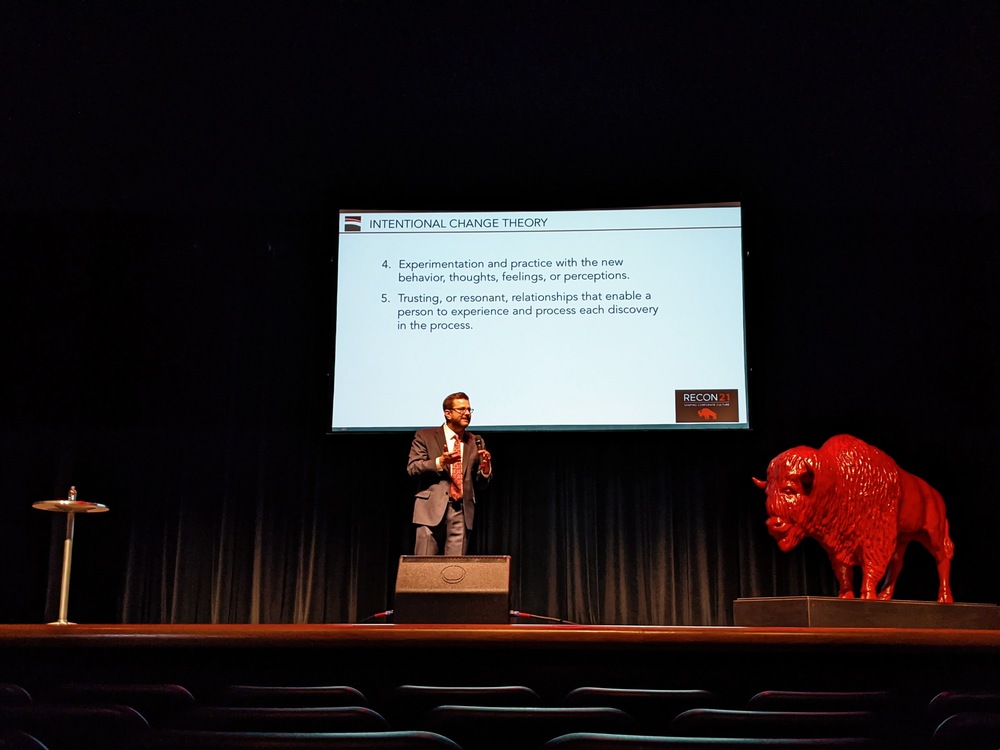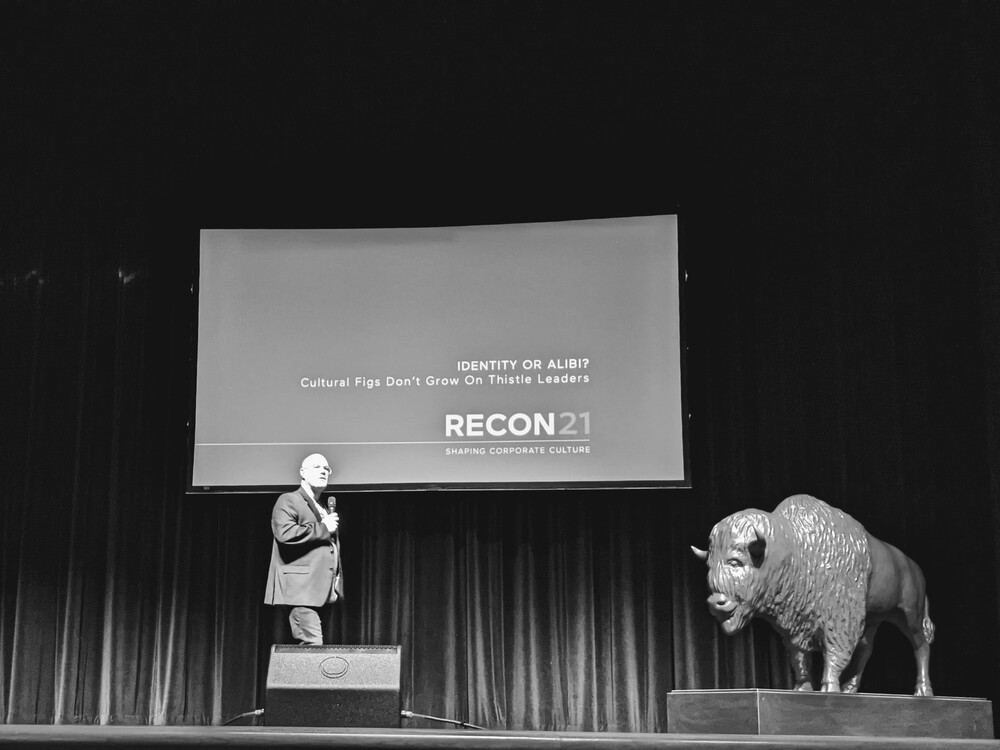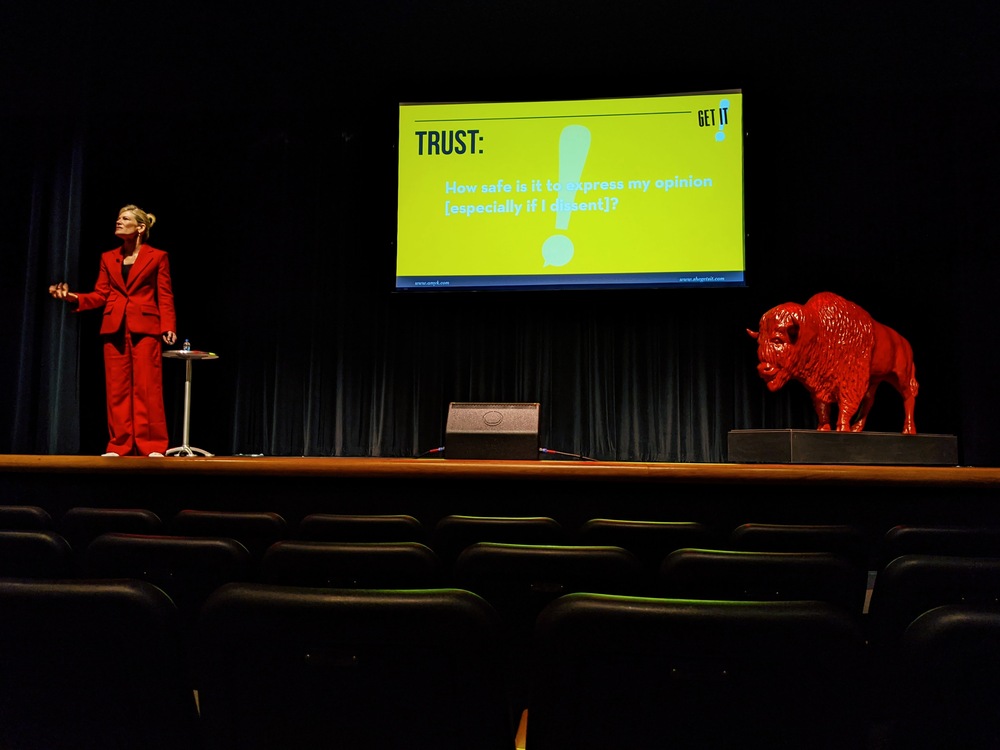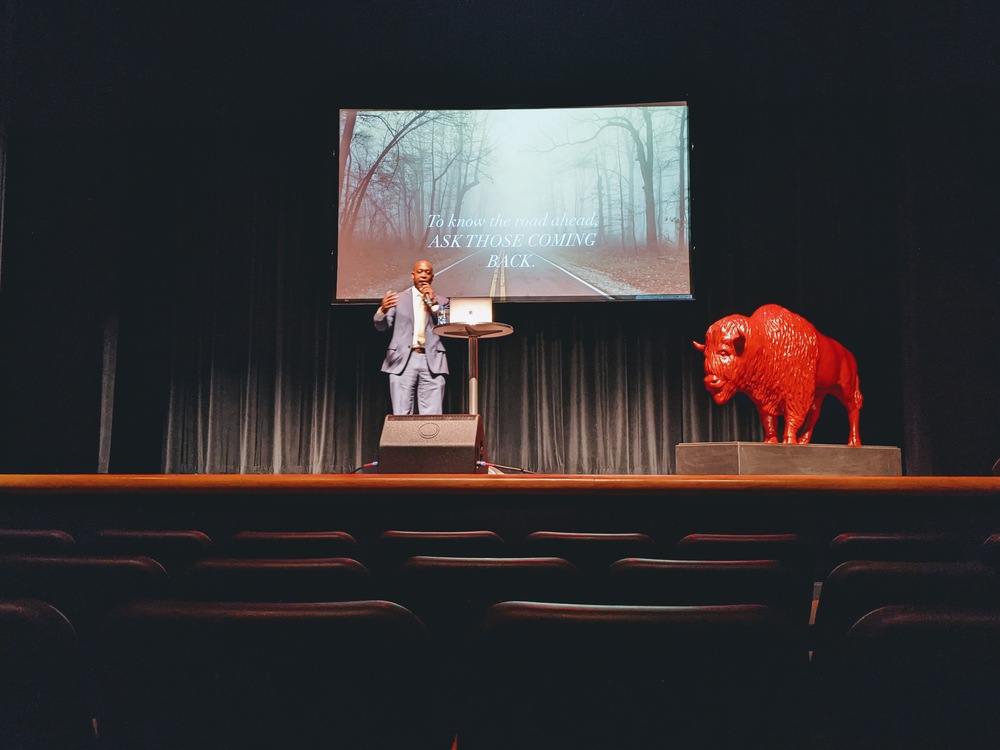Last month I had the pleasure of attending the RECON21 leadership conference. The conference is put on by The Kimmell Foundation for Recovering Leadership, an organization that bears my grandfather’s name and is dedicated to promoting “a value culture based on the core belief that people are intrinsically valuable.”
Our vision is a world where people know they are valued, where their lives are improved daily in the workplace, where organizations thrive through empowered employees, and where people awaken to the significance of valuing each other and practice this principle in all their affairs.
The conference was a single-day, single-track conference with five speakers and a speaker panel. There were about 100 attendees. There was also an acapella group to entertain us between speakers, and if a speaker had a book, it was given out to attendees for free. A stack of books is the best swag bag possible.

First up was Dr. Nathan Mellor, CEO of Strata Leadership. The title of his talk was Change your mind, change your life.
Changing your mind is easy. You can do it in an instant. Changing your mindset takes time. It requires hard work, and a willingness to endure discomfort. It is not easy, but it is worth it.
Nathan’s primary talking point revolved around Carol Dweck’s ideas about mindset:
According to Dweck, individuals with a “growth” mindset are more likely to continue working hard despite setbacks. Those with a “growth mindset” believe that they can acquire any given ability provided they invest effort or study. Dweck argues that the growth mindset “will allow a person to live a less stressful and more successful life”.
(More detail on the growth mindset on the Farnam Street blog.)
He also discussed Daniel Kahneman’s Thinking, Fast and Slow:
“System 1” is fast, instinctive and emotional; “System 2” is slower, more deliberative, and more logical.
My takeaway was this: Leadership requires a growth mindset, a growth mindset requires system 2 thinking, and finally, the motivation to pursue these ends must come from, in my own words, a power greater than ourselves.
I don’t think you will consistently do the hard things required to be a great leader unless you are motivated by love. Love makes the difference. It is the reason why leaders endure hardship; it is why they refuse to give up. It is also why they inspire us to keep moving forward.
You can find Nathan’s other talks, including his multiple TEDx talks, on YouTube.

Next up was Thomas Hill III, my cousin and founder of the Kimmell Foundation. His talk, Identity or Alibi? Cultural Figs Don’t Grow On Thistle Leaders, was a call for leaders to not only see the inherent value in everyone they lead (the core message of the foundation) but to take responsibility as leaders to create a culture that embodies that value. He largely drew from his own story and experience, which you can read about in his book. A recent post on his blog discusses the same topics:
It’s simple: selfish people make terrible leaders; other-oriented people make great leaders. It is our response to the inevitable suffering and resistance we experience in life that develops the character that determines the quality of our leadership. It is the quality of our leadership that determines the culture of our organizations. It is the culture of our organizations that determines the quality of the lives of the people we lead.
As a leader, I cannot live my best life if the people I serve aren’t living theirs. Suffering in my life has the potential to produce in me the character necessary to lead well. Suffering is the substance of life, mine and the people I lead. The next time I find myself suffering, I want to be able to say, “What will I gain from this that I can give to those around me?” It is in this way that the inevitable difficulties in my life are redeemed, and it is The Kimray Way.

Third was AmyK with The Power of Profitable Conversations. She moved fast through a lot of material and was given more time than anyone else. As such, it would be difficult to succinctly summarize her talk, but it was the most tactical of all the talks which I appreciated. I like a mix of inspirational, strategic, and tactical content. You can get the “cheat sheet” version of her slides by signing up to her email list on her website.

Skipping ahead, the last talk of the day was from Wayland Cubit, a police lieutenant and master mentor. He stole the show when he invited one of his mentees on stage to share his story. There were tears. Such an authentic and emotional voice was just the thing to end the day with.
You can also find Wayland’s TEDx talk on YouTube.